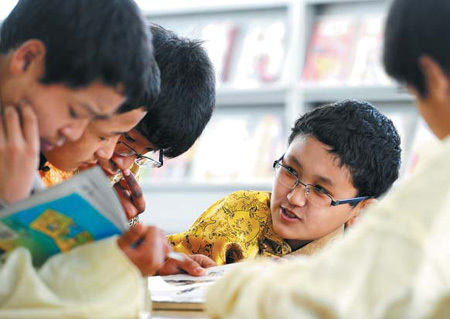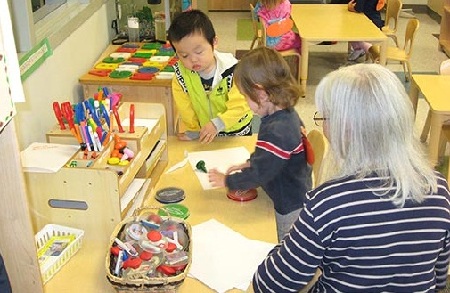After joining early childhood education classes my son has become well mannered and has leant to listen to instructions,” says Chai Fei. On the whole, her two-year-old son Borui has benefited immensely from the classes, run by RYB Education Institute, she says.

Early childhood education classes have taken off in China in recent years. Parents enroll their toddlers for different reasons: some want their kids to get an early start at school; others want their “only child” to interact with other children his or her age, and still others want early exposure to the English language. As for Chai Fei, she says she plans to learn from her son’s classes. As a young mom born in the 1980s, Chai admits she lacks the parenting know-how to teach Borui herself.
High Demand
Lü Na, also born in the 1980s, says she grew up in a home where her parents were mostly absent. She has many siblings, and as money became tight she was sent off to live with her grandparents. She saw her parents only on weekends.
Having grown up by the sea in Dalian, Liaoning, Lü learned to swim – all by herself – when she was five years old. These days, even allowing a young child to walk down the street alone is unthinkable for most parents.
Lü visited a dozen kindergartens near the family home before deciding on one for her three-and-a-half-year-old daughter. At the time all the public kindergartens were full up, and she was forced to go private. She ended up choosing RYB’s kindergarten. “I went for RYB because it’s a chain kindergarten with a good reputation. Its operations are large-scale – it knows what it’s doing – and classes are standardized,” she says.

Tuition is RMB 2,900 per month at RYB, which is about two thirds the average monthly salary (RMB 4,672) of Beijing residents. Lü isn’t daunted by the cost, however; for her, as for most families in China’s big cities, pulling out all the financial stops for a child’s education is considered a worthwhile – and necessary – expense.
In China, it is common for grandparents to take care of children in their first few years of life. In many families, both parents work; often, it’s retired grandparents who have both the time and energy to raise the kids. A recent survey by Babytree.com, a leading Chinese parenting website, shows that grandparents help raise children in about 60 percent of Chinese families.
